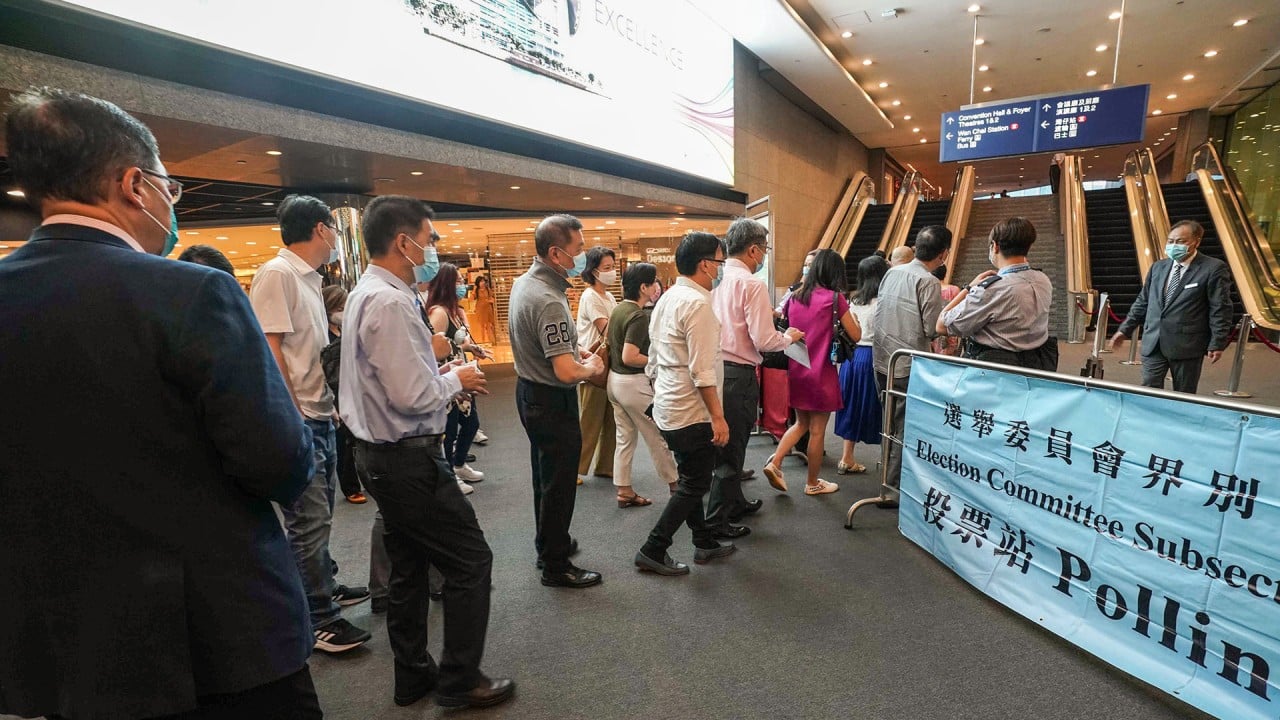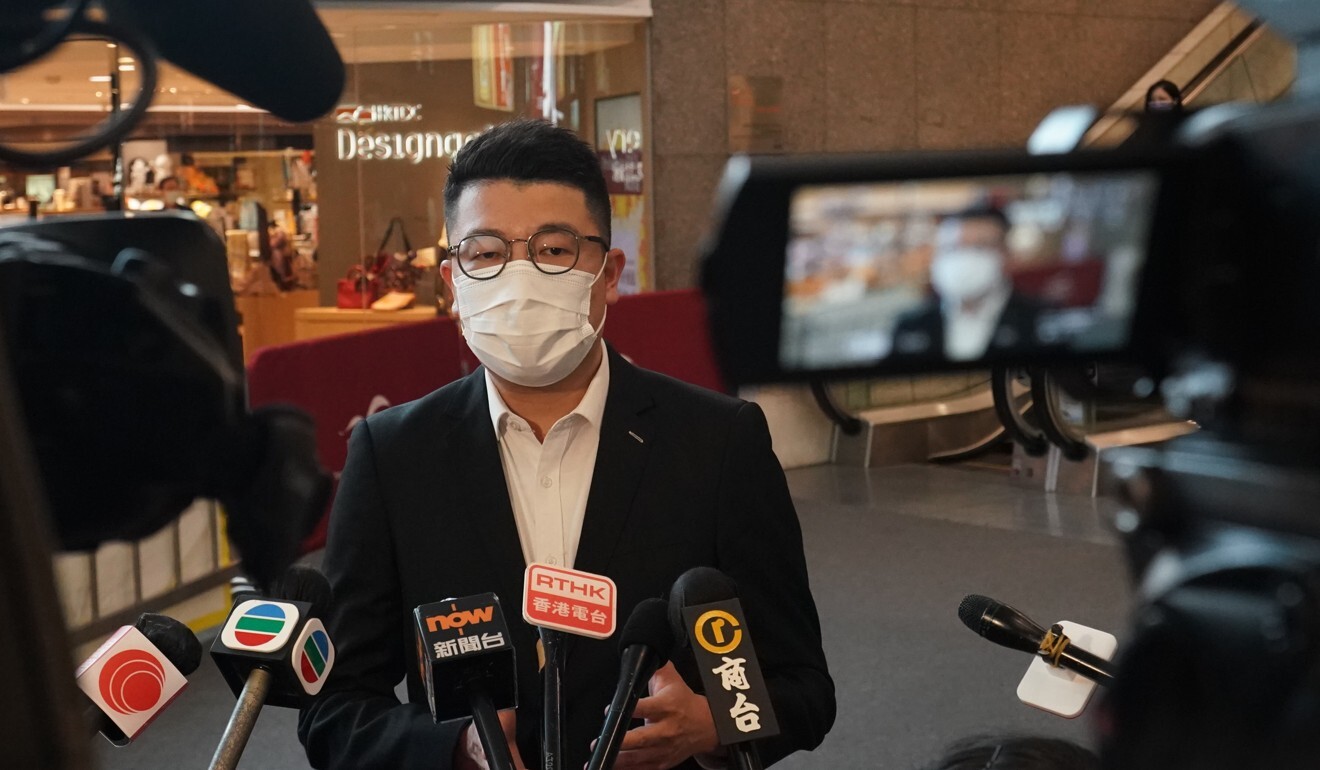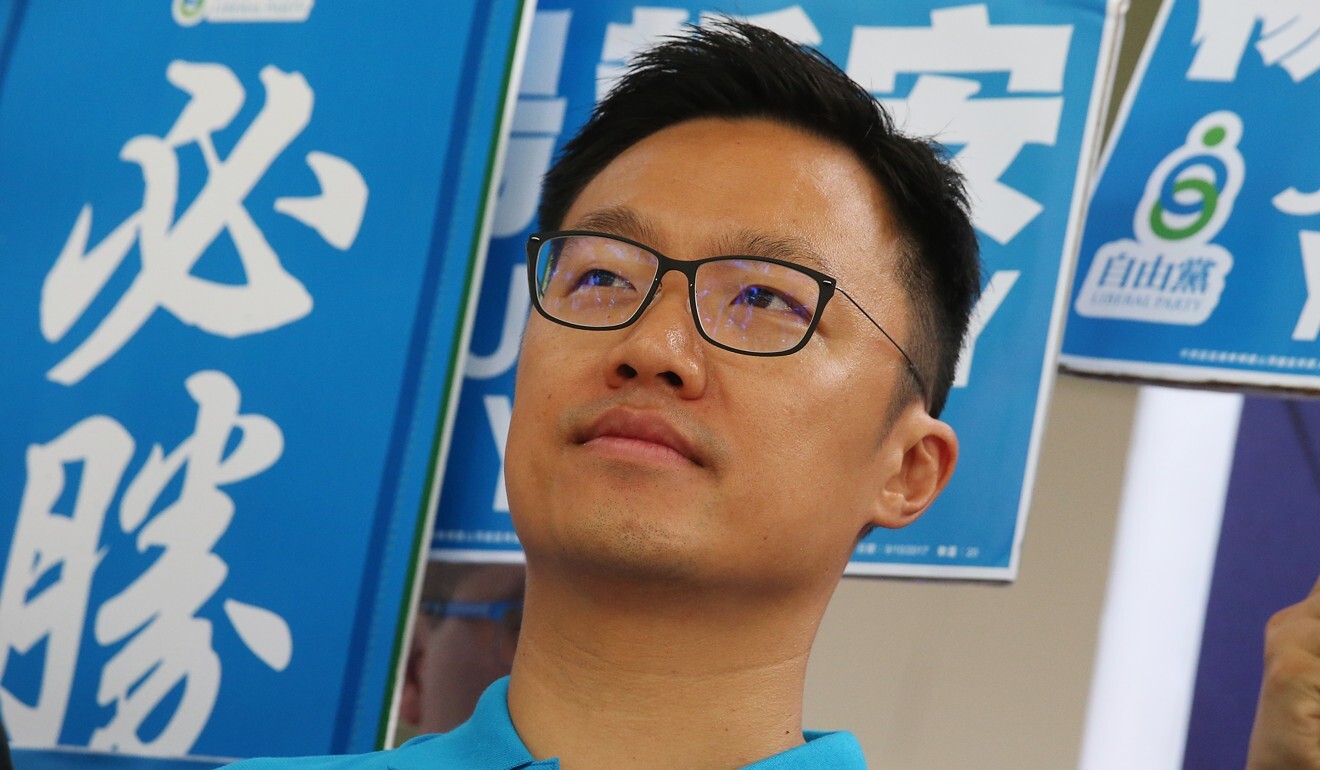
Fight club: Hong Kong Election Committee members strategise to sweep 40 seats for ‘patriot’ lawmakers
- Former city leaders Tung Chee-hwa, Leung Chun-ying among likely candidates for chief convenor of powerful committee
- Pro-establishment parties go all out to get members in as lawmakers via Election Committee route
Different camps are hoping to sweep the most positions available, angling to be among the 40 lawmakers who can represent the Election Committee in the legislature, now expanded from 70 to 90 seats.
Nominations for December’s Legco election will be held over two weeks from October 31, and pro-establishment parties are hoping to snag the biggest slice of the pie.
This new political role of the Election Committee comes also with the responsibility to act as the gatekeeper on aspiring candidates who must secure at least 10 nominations from its members before they can apply to contest the polls.

The stakes have never been higher for the committee, with its new, vast powers and the presence it can command in Legco, acting both as a pro-Beijing voice and a check on the local government.
While it remains to be seen how these roles will play out, the lobbying for seats now gathering pace signals how seriously the process is being taken.
The camp was previously united in trying to tamp down the pull of the opposition, but competition is now stirring from within its ranks, as lawmaker hopefuls seek to prove who can be better elected representatives.
Democratic Party ends meeting with no decision on contesting Legco poll
A lawmaker role would also enable an ambitious politician to emerge from the shadow of the 1,500-member committee, providing a stepping stone to other positions in future, analysts said, pointing to this new route of political participation.
The jockeying comes in the lead-up to the most important role the committee will play – electing the city’s next chief executive in March next year.

02:02
Hong Kong’s first political race after Beijing shake-up as Election Committee voting underway
Who will be convenor?
Of more immediate interest, though, is the appointment of the committee’s chief convenor, a new post created as part of Beijing’s overhaul of Hong Kong’s electoral system, imposed in March.
Although analysts have said the key position appeared tailor-made for former chief executives Leung Chun-ying, 67, or Tung Chee-hwa, 84, those in the pro-establishment circles recently floated the idea that the job could go to Tam Yiu-chung, 71, Hong Kong’s sole delegate to the National People’s Congress (NPC) Standing Committee, China’s top legislative body.
Since Hong Kong was returned to China in 1997, five election committees have picked the city’s leaders without convenors.
The change this year triggered a debate within the pro-establishment bloc over who was eligible under the Basic Law, the city’s mini-constitution.
The English version of Annex I of the Basic Law says the chief convenor should be an Election Committee member who holds “an office of state leadership”, but the Chinese version states it should be someone “discharging national leadership duties”.
A veteran pro-establishment heavyweight, speaking on condition of anonymity, said Beijing might want to avoid “choosing someone who could also be eyeing the city’s top job, to demonstrate its impartiality”.

Two pro-establishment heavyweights – Federation of Trade Unions chairman Wong Kwok-kin and veteran China watcher Lau Siu-kai – said Tam could not be considered a “state leader”.
“But ultimately, Beijing can adopt a loose interpretation to appoint Tam if the pick is in line with the overall interests of Hong Kong,” said Lau, vice-president of the semi-official think tank, the Chinese Association of Hong Kong and Macau Studies.
Speculation, meanwhile, has mounted on potential candidates for the leadership race next March. Several sources suggested that incumbent Carrie Lam Cheng Yuet-ngor might step up for a second term, while her predecessor Leung, vice-chairman of the Chinese People’s Political Consultative Conference, has not ruled out seeking a comeback.
Another member of the pro-establishment bloc said having Tam as the Election Committee’s chief convenor would avoid a perceived conflict of interest if Leung chose to run for the city’s top job.
The source added that Tam, as a member of the standing committee which had “real constitutional power” in China’s political structure, was amply qualified for the convenor’s role.
A veteran member of the pro-government Democratic Alliance for the Betterment and Progress of Hong Kong (DAB), Tam had previously described the new system of convenors as “a gatekeeping mechanism” to resolve election-related issues.
He did not comment when asked by the Post about his possible appointment.
The chief convenor and sub-convenors for the committee’s five sectors were expected to be named next month, multiple sources said.
Just how will Hong Kong’s new Election Committee flex its muscles?
Veterans lobby for younger candidates
With the overhaul of the electoral system, the Election Committee can field 40 representatives to form the largest group in the 90-seat legislature at the December 19 poll.
There will also be elections for 20 directly elected lawmakers from geographical constituencies and 30 from functional constituencies.
To meet Beijing’s directive that only “patriots” run Hong Kong, all Legco candidates must be cleared to run by the Election Committee, and they have to secure at least two nominations from each of its five sectors.
An insider from DAB, the largest pro-establishment party, said it hoped to get as many as possible of the 40 Legco seats for committee members.
Several party veterans were leading a team of younger members to garner support within the committee, he said.
“Some members who mostly focus on grass-roots work may have difficulty approaching businesspeople on the committee who do not know them or are reluctant to meet them,” he said.
He added that the party intended to field seasoned politicians, as it would be difficult for new faces to get the support they need.

For example, Election Committee member Edward Lau Kwok-fun – a lawmaker representing the district council sector which has been scrapped – might now return to Legco through the 40-strong group representing the committee, the source said.
Pro-Beijing analyst Lau said the central government might not give the lion’s share of Legco seats to traditional pro-establishment forces.
“Young, capable newcomers with administrative and professional experience are expected to fill the seats,” he said.
“I think the last thing Beijing wants is that seats in the new pie are still taken up by the familiar faces after the series of big surgeries.”
The business-friendly Liberal Party, traditionally weak in direct elections, is eyeing a direct seat in Hong Kong Island West, hoping an opposition boycott would improve its chances, according to an insider.
The party now has four lawmakers in functional constituencies.

Jeremy Young Chit-on is considered its best prospect from among four district councillors.
“He out-competes many district councillors in the pro-establishment bloc, considering his government experience and landslide victory in previous district polls,” the source said.
Young was a political assistant to the secretary for education from 2008 to 2012, and is now one of only three district councillors left in the 15-seat Central and Western District Council, following a spate of resignations by opposition councillors across the city.
Political scientist Ivan Choy Chi-keung, of Chinese University, said he expected Beijing’s liaison office in Hong Kong to coordinate lists of Legco candidates behind closed doors, just as it did for the Election Committee poll.
With “patriotism” the main criterion, potential candidates’ connection or appeal to Hongkongers and their political experience would matter much less, he added.
“Beijing will hand-pick a very limited number of pro-establishment candidates to run. Genuine competition is not expected,” he said.
How to win Hong Kong elections: political credentials trump real-world expertise
Ensuring more ‘representation’?
Hui Ching, research director at policy think tank Hong Kong Zhi Ming Institute, believed it was clear from the electoral overhaul that Beijing wanted the Election Committee to play a much bigger role than before, but also with greater diversity among loyalists.
“From the composition of the committee, Beijing has installed more seats for grass-roots groups and small and medium businesses. Apparently, Beijing wants the Election Committee to be seen as more representative and make it a channel by which public views can be funnelled to the government,” Hui said.
Political scientist Chan Wai-keung from Polytechnic University noted: “In the past, Election Committee members would have nothing else to do during their term except for picking the chief executive. Now, with a convenor, I would expect the members, as local representatives, to hold regular meetings to discuss social and political affairs and to make their stances known to the public and offer proposals to the government.”
Legco, despite having 90 members, will only have 20 directly elected seats, down from the previous 35. This would make it less representative of public views, Hui said. And any diversity achieved in the Election Committee’s broader swathe of representatives in Legco would not make up for the loss of an opposition to check and take on the government.
“Instead, Legco is expected to serve as a body that will coordinate with the government to pass bills and funding, like what it did during the colonial era,” Hui added.
“When Beijing talks about improving Hong Kong’s electoral system, it does not only aim to let more pro-establishment people enter the Election Committee or Legco. It wants a paradigm change.
“We can expect Election Committee members to speak out more on political and livelihood issues in the future. On the one hand, the members need to please Beijing, and on the other, they also have to show they are working hard to contribute to the good governance of Hong Kong,” he continued.
“Against this backdrop, it is not too surprising that some parties are already starting to lobby for support for fielding people to get as many as possible of the 40 seats in Legco.”
Additional reporting by Ng Kang-chung


